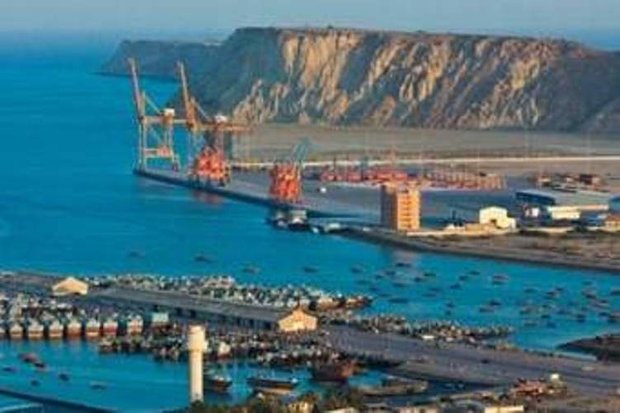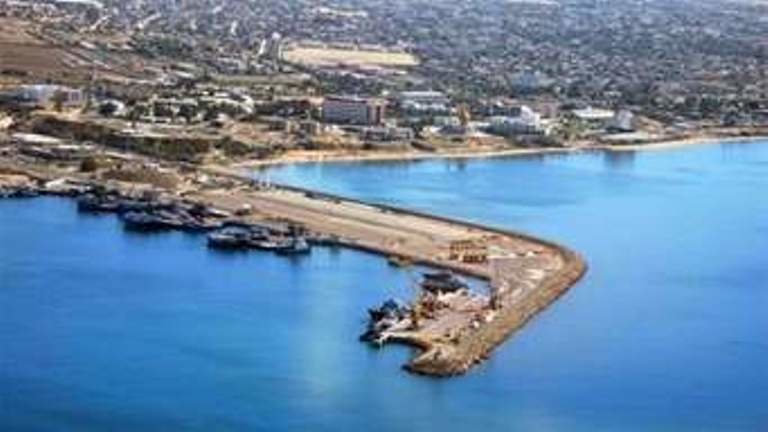TEHRAN, Dec. 14 (MNA) – In line with Iran’s policy to augment its transit capabilities, early December the first phase of the strategic Chabahar port was inaugurated by Iranian President Hassan Rouhani attended by officials from 17 countries.
The fresh enlargement in Chabahar would made the port a cost efficient and crucial transit destination for modern container ships carrying cargo along the International North-South Transit Corridor.
The move heralds the launch of a new chapter in the economic progress of Iran, India, Afghanistan and Central Asian states as it will be an vital step towards the realization of the International North–South Transport Corridor (INSTC), a 7,200-km-long multimode network of ship, rail, and road route for moving freight between India, Iran, Afghanistan, Armenia, Azerbaijan, Russia, Central Asia and Europe.
In May 2016, Tehran, New Delhi and Afghanistan signed an epoch-making agreement in Tehran to establish a transit and transportation corridor.
The agreement known as Chabahar Trilateral Agreement was signed by the three countries’ officials in the presence of President Rouhani, his Afghan counterpart Mohammad Ashraf Ghani and Indian Prime Minister Narendra Modi in Tehran.
North-South Transport Corridor
President Rouhani said the port has been launched to connect the eastern and northern neighboring countries to Indian Ocean, adding that the North-South Transport Corridor is the main project among others, which connect the south of Iran to the north.
The president asserted that “Shahid Beheshti Port is economically important because it will facilitate transfer of deliveries and goods from the Indian Ocean to the neighboring countries like Afghanistan and Central Asian countries.”
Rouhani added that the port is also politically important “because it will connect us to the eastern and northern countries, and even to European countries in the future, and this is politically important to us.”
“This Port will create many jobs for the people of Iran and the province of Sistan and Baluchestan. In addition, it can bring us closer to the world,” Rouhani added.
Job Opportunities
For sure, expansion of Chabahar Port would play a key role in the accomplishment of the INSTC which will fetch affluence to the countries lying along it, Iran and India in particular.
The development of Chabahar Port, as INSTC’s missing link, and thus complete implementation of the corridor are important to Iran as they will help create ample job opportunities in the country, increase its transit revenues, develop the areas lying along the route of the corridor inside the Middle Eastern state and facilitate its international trade.
While the port’s development is important to Iran, it is definitely of critical importance to India as it will lead to a turning point in the South Asian state’s foreign trade, providing it with easier and cheaper access to the markets of Afghanistan as well as the Persian Gulf littoral and the Central Asian states, Iran Daily wrote.
Crucial Role
As per the deal inked between India and Iran in May 2016, India plays a crucial role in this port project due to its willingness to open a trade path to Afghanistan and Central Asia.
India is to equip and operate two berths in Chabahar Port Phase-I with a capital investment of $85 million and an annual revenue expenditure of $23 million on a 10-year lease.
This will establish a Transit and Transport Corridor among the three countries using Chabahar Port as one of the regional hubs for sea transportation in Iran.
This is in addition to the multi-modal transport of goods and passengers across the three nations. The port is expected to be operational by the end of 2018, with New Delhi committed to developing a free trade area around the port, and finally completing the loop with a $1.6 billion railway line to Zahedan.
On Nov 22, the Iranian legislators passed the bill on agreement for establishment of international transport and transit corridor among Iran, India and Afghanistan.
The agreement that includes an introduction and 15 articles was presented by Ministry of Roads and Urban Development, was approved during a cabinet meeting back in October last year and it was submitted to the parliament last week in the form of a bill for passing legal procedures.
For sure, the development of the port will bring about affirmative impacts on the three countries trilateral cooperation.
In another hand, the port would create convergence between Iran and India both in terms of a buyer-seller relationship of energy resources and would be considered as a game changer in relations between two countries.


























Your Comment